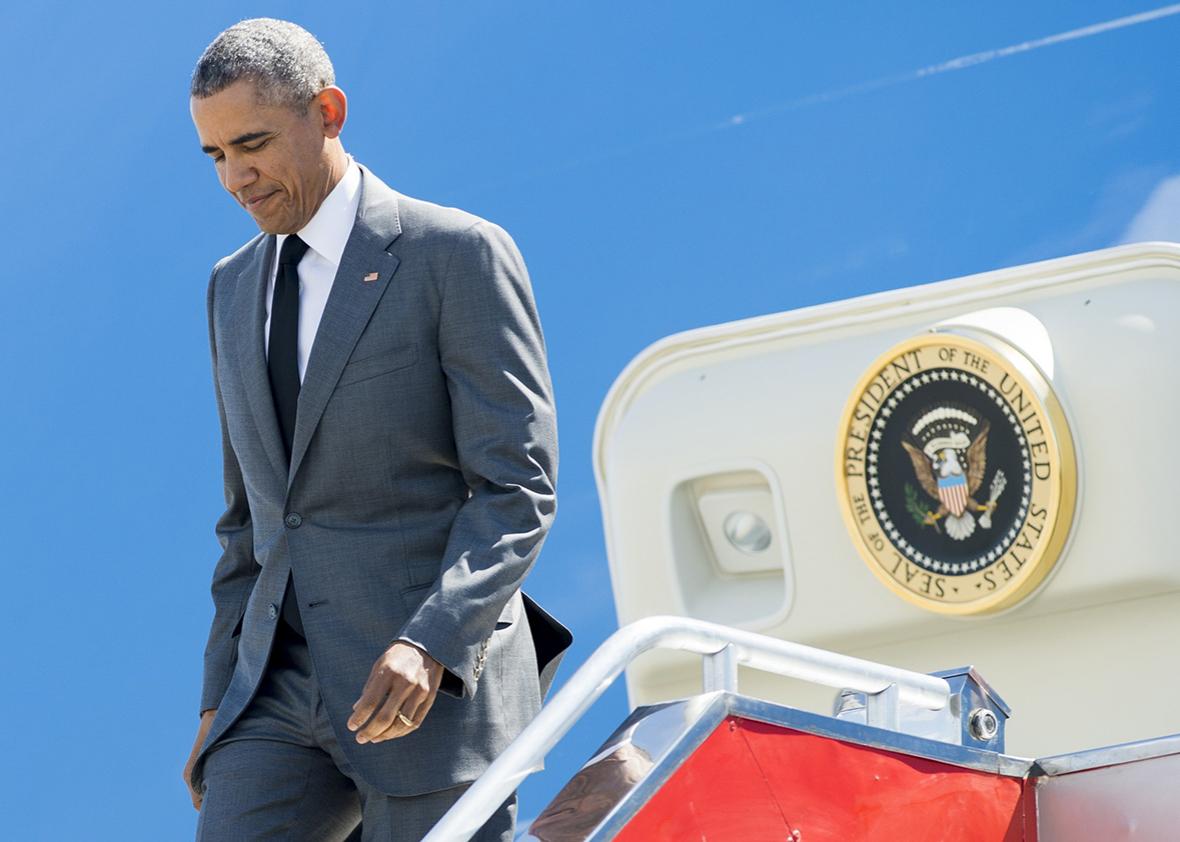In the wake of the horrific terror attacks in Paris last week, a number of Republican presidential candidates have suggested that Syrian refugees who are Muslim should be prohibited from entering the United States, in favor of Christian refugees.
Asked about this on Monday during remarks at the G-20 summit, President Obama didn’t hold back. “When I hear folks say that: ‘Well, maybe we should just admit the Christians but not the Muslims,’ when I hear political leaders suggesting that there would be a religious test for which person who’s fleeing from a war-torn country is admitted, when some of those folks themselves come from families who benefited from protection when they were fleeing political persecution, that’s shameful,” Obama said. “That’s not American. That’s not who we are. We don’t have religious tests to our compassion.”
“It is very important for us right now, particularly those who are in leadership, particularly those who have a platform and can be heard, not to fall into that trap, not to feed that dark impulse inside of us,” Obama continued. “I had a lot of disagreements with George W. Bush on policy, but I was very proud after 9/11 when he was adamant and clear about the fact that this is not a war on Islam. The notion that some of those who have taken on leadership in his party would ignore all of that, that’s not who we are.”
On Tuesday, things got worse. Despite the fact that all of the known Paris attackers were European nationals and not recent immigrants, more than half of American governors have lined up to say that they would not accept any Syrian refugees in their states.
The fact that these governors actually lack the power to prevent refugees from coming is beside the point. Seated now in the deeply paranoid, conspiratorial anti-Muslim discourse that has infected the American national security debate, the Syrian refugee question has become just another front in the culture war. Considered in light of Obama’s trenchant comments, it can also be seen as yet another round over the meaning of “American exceptionalism,” an argument that has been at a high pitch throughout, and in some ways defined, his presidency.
From the earliest days of Obama’s candidacy, his critics have tried to cast him as someone who didn’t quite get what was great about America. They went after him for an “apology tour,” in which he publicly acknowledged that, in the past, the United States had done some things wrong. For his supporters, however, acknowledging that America had failed to live up to its ideals and should endeavor to do better is an essential component of leadership. Put simply, for conservatives, American exceptionalism is about American power. For liberals, it’s about American responsibility. This difference couldn’t be clearer than in the current argument over Syrian refugees.
The refugee experience hits close to home for me. As for so many Americans, it’s central to my understanding of American-ness in a very personal way. My father was born in a refugee camp in Germany, the son of Ukrainian refugees who had fled famine, war, and Soviet oppression. When I was 10 years old, my dad moved from journalism into humanitarian relief and development work, and he moved our family to the Philippines, where my he and my mom worked for a year in a refugee camp for Vietnamese, Cambodian, and Laotian refugees, fleeing war and oppression just as his own family did, as they prepared to come to the United States. (At the time, as Jamelle Bouie notes, many Americans were opposed to these “boat people” resettling here.)
What motivated an American family to pack up the kids and move to the shores of the South China Sea? First, the fact that our family very directly owed a great deal to the generosity and sacrifice of others; second, our Christian faith, which exhorts us not only to be compassionate, but to act upon that compassion; and third, a deep commitment to the ideal of America as a refuge, and an understanding of the responsibility to preserve and strengthen that ideal.
No one is saying that refugees, from anywhere, should simply be allowed into the country without being screened. It’s just smart policy to vet refugees, and of course, this is what’s being done now, despite what Sen. Ted Cruz and Gov. Mike Huckabee would have you believe. As Huffington Post’s Elise Foley reported, the screening process is extensive and includes “an 18- to 24-month process on average that includes biometric and biographic tests, interviews and other vetting procedures by a number of U.S. security agencies.”
While acknowledging that security is a legitimate concern, it’s also important to note that, of the hundreds of thousands of refugees from the Middle East who have come to the United States since Sept. 11, 2001, not one has committed any act of terror.
These facts should not be lost as our more opportunistic politicians claw their way to the paranoid, populist bottom. As with so much else in our national security debates in recent years—torture, civil rights, detention, war, and occupation—these arguments are not just about policy, but about who we are as a country, about the society we’re trying to preserve, a place people from all over the world see as a refuge.
